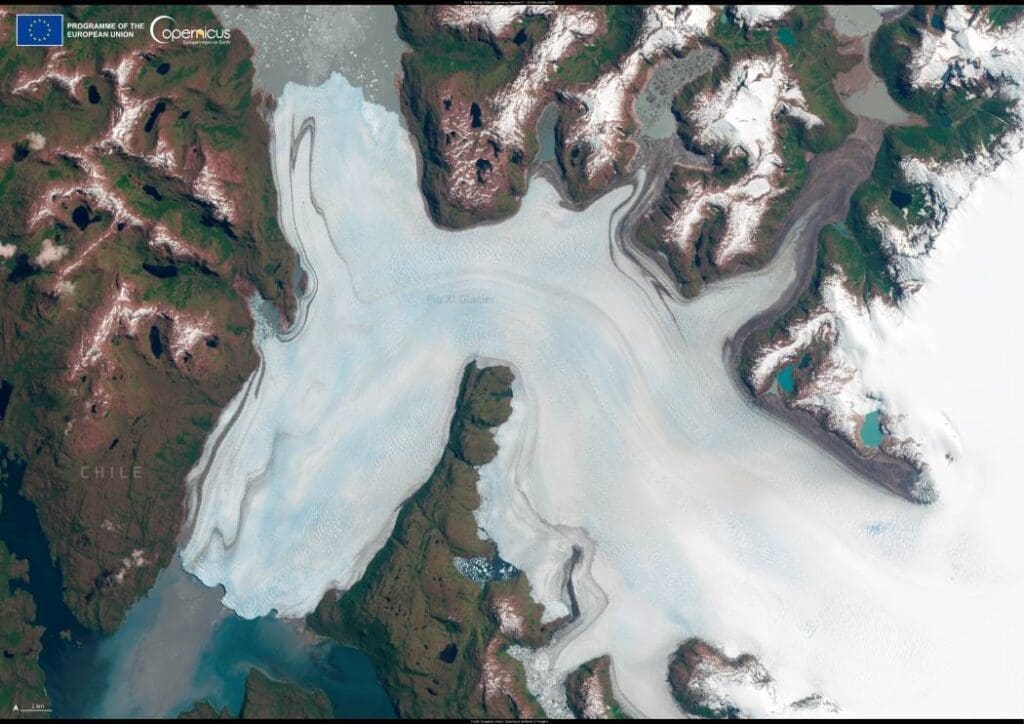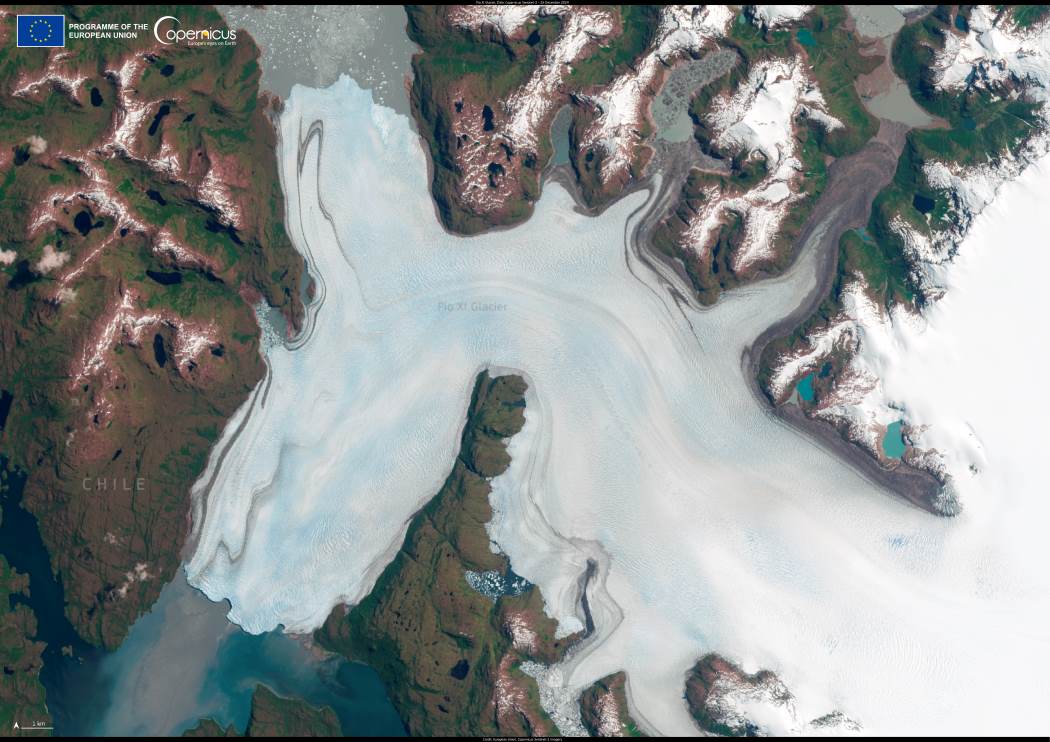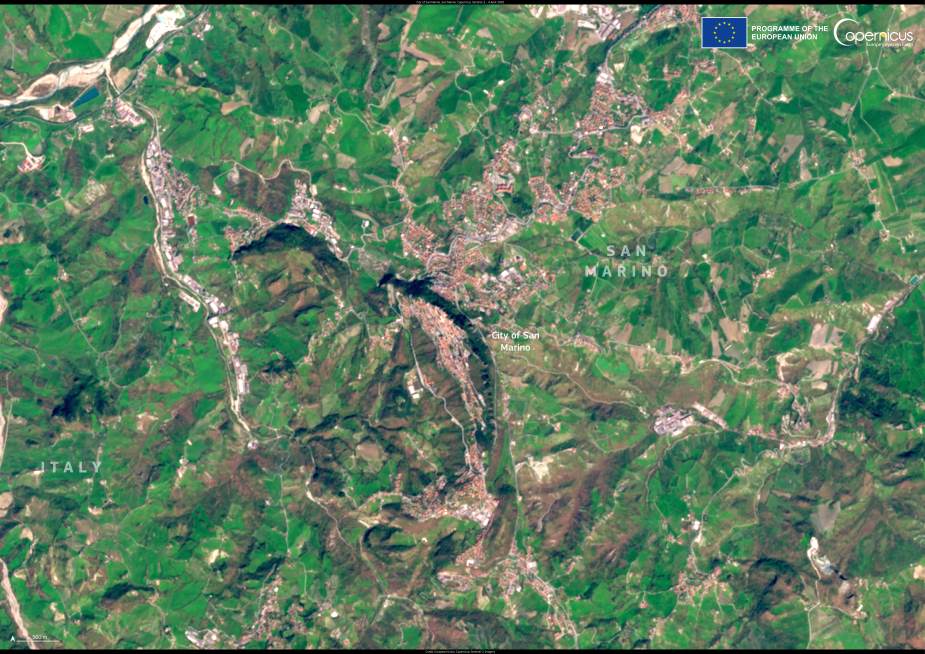The Pio XI glacier, nestled in Chile’s Southern Ice Field, holds the distinction of being South America’s largest glacier and a rare anomaly in the face of global climate change. While the majority of the world’s glaciers are retreating, Pio XI continues to advance, capturing the attention of researchers worldwide.
Since 1945, the glacier has grown by 11%, adding 126 km2 to its area and contributing to the formation of proglacial lakes. Scientists attribute this unusual behavior to a combination of factors, including significant precipitation, stable regional temperatures, and its proximity to active volcanoes. Despite its expansion, experts emphasize that Pio XI is an outlier; the vast majority of glaciers are receding at alarming rates.

This striking view of Pio XI comes from the Copernicus Sentinel-2 satellite, with the image acquired on December 25, 2024.
The high temporal resolution of Sentinel-2 data allows for continuous, precise monitoring of glaciers, equipping researchers and policymakers with the tools to address climate-related challenges.
Research into the glacier’s growth is ongoing, with a focus on understanding the complex dynamics driving its expansion and what this could mean for global glacier behavior. Insights from these studies may help improve models of glacier response to environmental changes.
Featured image credit: European Union, Copernicus Sentinel-2 imagery




